Hermetic sealing plays a crucial role in the longevity and functionality of biocompatible implantable devices such as pacemakers, cochlear implants, and biosensors.
These devices require seals that not only block the ingress of bodily fluids, gases, and particles but also remain compatible with human tissue over extended periods. A reliable hermetic seal is essential to protect sensitive internal components from corrosion and degradation, factors that could compromise performance and long-term reliability once implanted.
In this context, thin film technology is key. Advanced thin films create barriers that are both impermeable to contaminants and biocompatible with surrounding tissues. These coatings, often applied using Physical Vapor Deposition (PVD) methods like those employed by KDF Technologies, can include materials such as parylene, silicon nitride, or alumina—each known for their strong barrier properties and tissue compatibility.
KDF Technologies’ in-line sputter coating systems for medical devices offer the precision and control needed to deposit uniform, defect-free layers. This level of accuracy is critical to achieving both hermetic sealing and biocompatibility. By ensuring stable performance and safety over the device's intended lifespan, KDF supports the development of next-generation implantable technologies.
Implantable devices that benefit from biocompatible thin film hermetic sealing—enhancing their reliability and safety—include:
Pacemakers
These devices, designed to help regulate cardiac rhythm, depend on hermetic seals to safeguard their electronic components against bodily fluids, maintaining performance over time.
Cochlear implants
Implants that restore hearing for individuals with profound hearing loss must be fully sealed against bodily fluids to shield delicate internal electronics and preserve long-term performance.
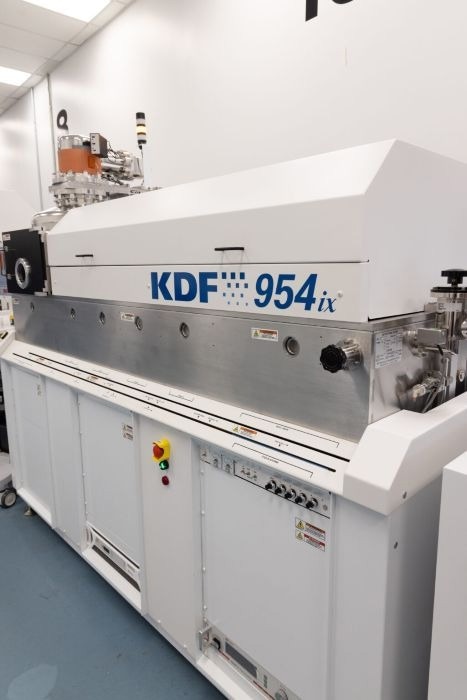
Image Credit: KDF Technologies, LLC
Implantable cardioverter-defibrillators (ICDs)
Devices designed to monitor cardiac rhythms and deliver electric shocks to correct irregular heartbeats require durable hermetic seals to function dependably within the body.
Neurostimulators
Utilized in the treatment of neurological disorders such as Parkinson's disease and chronic pain, these devices require effective hermetic sealing to safeguard their electronic circuits against the body’s harsh internal environment.
Biosensors
Implantable sensors designed to monitor multiple physiological parameters must have hermetic seals to maintain precise readings throughout their operational lifespan.
These examples highlight the crucial role of hermetic sealing and biocompatible thin films in the development and functionality of implantable medical devices. Together, these technologies ensure reliability and efficacy for patient care.
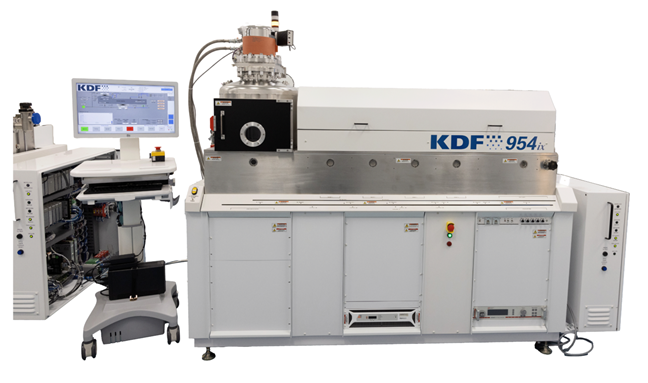
Image Credit: KDF Technologies, LLC
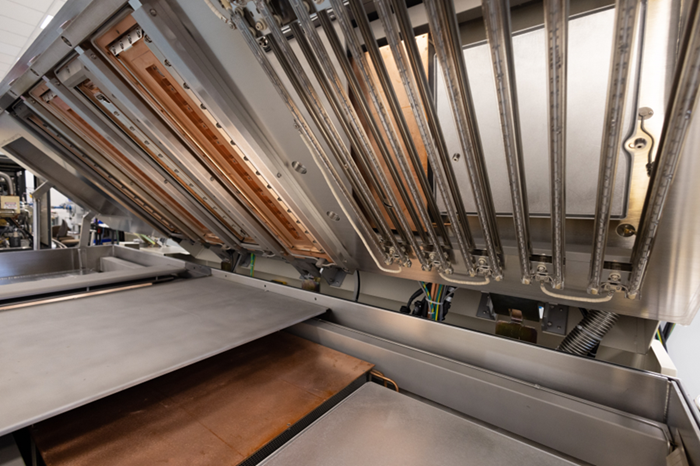
Image Credit: KDF Technologies, LLC
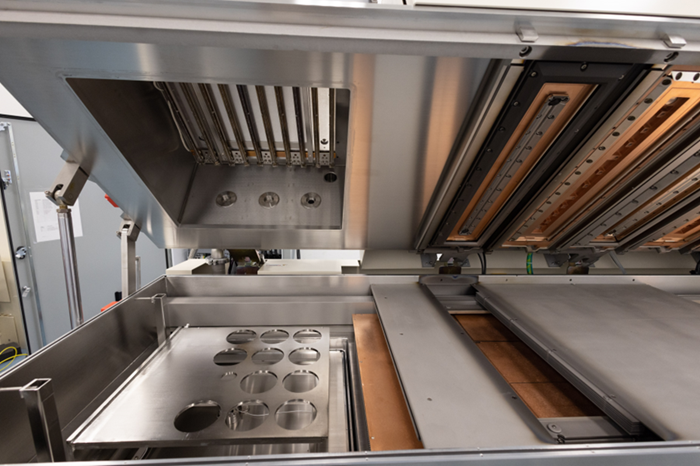
Image Credit: KDF Technologies, LLC
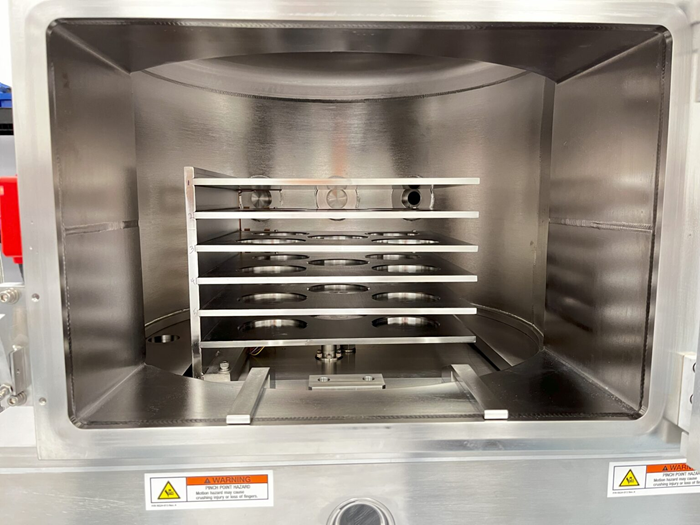
Image Credit: KDF Technologies, LLC
About KDF Technologies, LLC
Founded in 1986, KDF is a leading supplier of both new and remanufactured physical vapor deposition batch inline sputtering tools for the mainstream silicon, emerging materials and flat panel display markets.
KDF services an installed base of over 2,000 systems in the field – over half of the semiconductor fabs in the world use a KDF system in wafer processing.
KDF is committed to delivering the most advanced and reliable batch in-line sputtering systems at the industry’s lowest cost of ownership, KDF’s tools cover a wide variety of process requirements and can be customized to meet the customer’s needs. KDF vacuum coating systems are used in the production of devices in a variety of markets, including semiconductors, laser diodes, photo masks, telecommunications networks, wireless circuits, sensors, optoelectronics, medical devices, MEMS, MOEMS, flat panel display and gallium arsenide (GaAs), high density interconnect and radio frequency power devices.
Sponsored Content Policy: News-Medical.net publishes articles and related content that may be derived from sources where we have existing commercial relationships, provided such content adds value to the core editorial ethos of News-Medical.Net which is to educate and inform site visitors interested in medical research, science, medical devices and treatments.